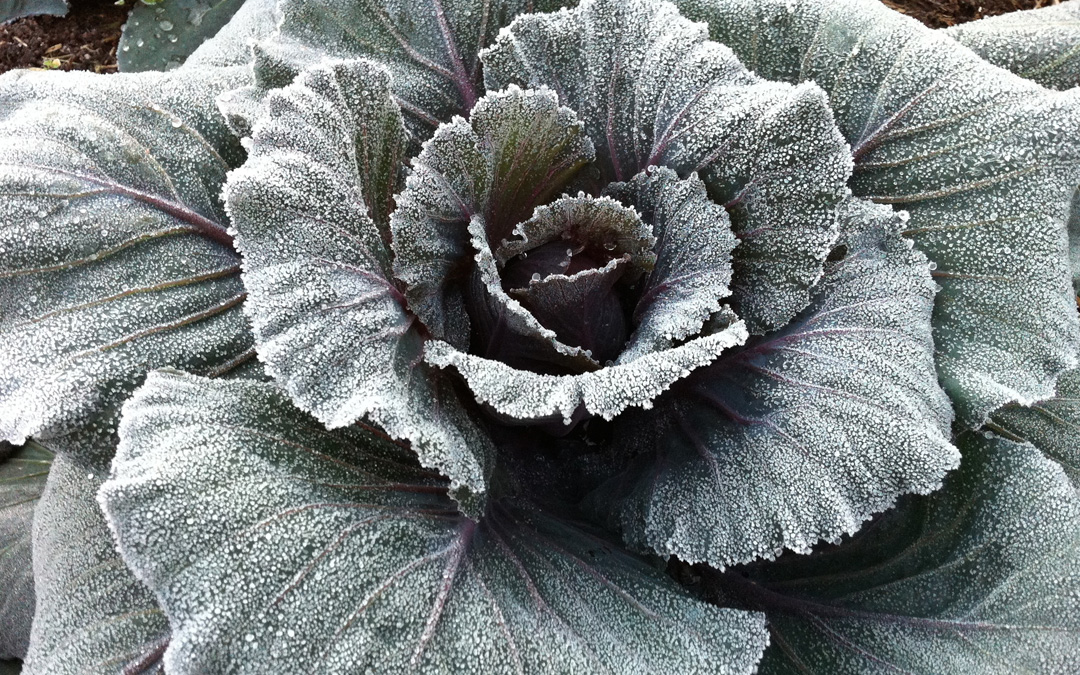10 tips for winter vegetable planting in Melbourne

Brassicas – cauliflower, cabbage, cabbage, kale
1. Before planting out, dip seedlings in Dipel, an organic bacterium that takes care of green caterpillars, the eggs of which may already be on the underside of the leaf. It is available from Yates as ‘Nature’s Way Caterpillar Killer’.
2. Plant brassicas so that the lower leaves are partially or wholly submerged in the soil. This prevents wobble which leads to poor anchorage in the soil and small heads.
3. Net all brassicas and secure the bottom of the net with weights to prevent the white cabbage butterfly from laying eggs on the foliage. These eggs turn into very hungry caterpillars.
4. Lay dripline if possible between rows of brassicas. Brassicas thrive on regular watering. As the plants expand, the leaf coverage makes it difficult for enough rain or even hand watering to get to the soil. Water right throughout winter.
Onions
5 .Raise in punnets and plant in a farrow (use the edge of a hoe for this). Lean the seedlings against one side of the farrow, backfill with soil and water in. The next day the seedlings will stand upright.
Garlic
6. Vernalise your garlic (put it in the fridge) for 40 days before planting to give it a false winter which will allow it to develop roots and shoots before the shortest day (21 June). After that, as days lengthen, the bulbs will swell.
Root vegetables
7. Prepare your soil to a fine tilth to at least a spade’s depth or to a depth 6cm deeper than the length of the vegetable e.g. carrot or parsnip. Look on the seed packet for the expected length of the root vegetable.
8. Do not add manure to root crop beds.
Leafy greens
9. Plant these in the shadiest part of the vegie garden but not in full shade. The darker the leaf, the more shade the plant can tolerate. Partial shade (3 hours of morning sun) works well, allowing you to use sunnier spots for brassicas, onions and root vegetables.
Potatoes
10. Keep these well away from pumpkins as they are bad companions. Use certified seed from a nursery and hill up as they grow to prevent greening from exposure to the sun.
Green potatoes must be discarded as they contain solanine which is toxic.
P.S. Plant annual herbs such as coriander and chervil as they are less prone to bolting in winter.
Written by Robin Gale-Baker
